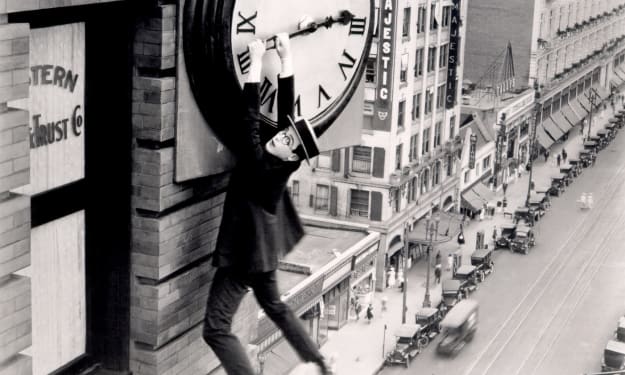Man's Search for Meaning
Frankl's honest look to tragedy for these modern times

"When we are no longer able to change a situation, we are challenged to change ourselves."― Viktor E. Frankl, Man's Search for Meaning
I revisited Viktor Frankl's "Man's Search for Meaning" a few weeks ago. The first time I read it, I was 20, and life was way different. This book is so honest about life, disappointment, sadness, and life's curb balls. The title suggests the plot: how to find meaning in your life. Still, it goes beyond that, it shows you the importance of it, and it also demystifies it, meaning that instead of waiting for the best "great thing," and make that your purpose, it shows you that it is already in you your purpose, and shows you how to use it for your good.
The book narrates Frankl's own experiences at a Nazi concentration camp. The beauty of it, though, lies in his insights and the fact that you can witness how he shaped his ideas based on what he went through in the concentration camp. It is a good recollection of Frankl's thoughts when recalling certain circumstances. It allows you to feel that you're not reading another self-help book from a guru that knows it all, but you are reading the testimony of a man who went through hell and had the most significant memory to be able to retell the whole story. The difference with this retelling is that this time he is adding footnotes that explain why he is not shattered about that trip. The man lost everything and almost everyone he loved, including his pregnant wife and his first book's manuscript. He was a psychiatrist born in the 1900s. He developed his ideas to shape his Logotherapy. Frankl's Logotherapy talks about how, when we strive to find a purpose in our lives, we are at the dawn of humans' primary motivational force.
You probably heard about this before, as people do talk about this a lot; many of them advise that to overcome ourselves and our circumstances, we must keep our eyes focused on a goal. When you focus on the target, you fly through the events, which grants you control of your mind and spirit. If you listen carefully to all the inspirational speakers out there, they all agree that to act, you must first gain control of your mind. Frankl explains it like this: "Everything can be taken from a man but one thing; the last of the human freedoms — to choose one's attitude in any given set of circumstances, to choose one's own way."
Viktor notes that mental health needs a certain amount of tension between what you have already achieved and what you still need to accomplish. This is a radical idea that opposes what we usually assume, that you need happiness and rainbows around you and that they'll lead the way to mental peace. If this happy/rainbowy scenario was real, why aren't you entirely happy now that you have almost everything you dreamt of? Because our purpose needs to be reshaped continuously for every new circumstance that we encounter.
How can you find and shape this purpose of yours? Viktor also talks about the "existential vacuum," as the inability to find or create meaning in life, leading to feelings of emptiness, alienation, and aimlessness. This right here gives you full control and a place to start. We are uncertain about the upcoming weeks; everyone's family has been impacted as we speak by this virus (due to contagion or due to containment). The news and the uncertainty can increase our stress and may lead us to think that we are no longer in control. The most crucial lesson in this book is that no matter where you are, even in a concentration camp, you will always control your mind, you need to find the will to do it, and that will comes from your purpose in life: your dreams, someone that relies on you for care, the things you always wanted to do, that goal that you have been putting off. The most straightforward act of kindness shows your purpose. Try to find it!






Comments
There are no comments for this story
Be the first to respond and start the conversation.